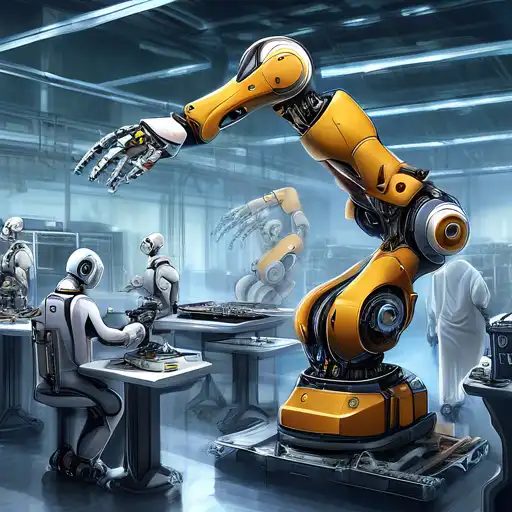The Revolutionary Impact of Robotics on Modern Manufacturing
In the ever-evolving landscape of manufacturing, robotics has emerged as a game-changer, revolutionizing how products are designed, produced, and delivered. This transformation is not just about automating repetitive tasks but about redefining efficiency, precision, and scalability in manufacturing processes.
Enhancing Efficiency and Productivity
One of the most significant benefits of robotics in manufacturing is the dramatic increase in efficiency and productivity. Robots can operate 24/7 without fatigue, performing tasks at a consistent speed and precision that far surpasses human capabilities. This relentless productivity enables manufacturers to meet growing demands without compromising on quality or delivery times.
Improving Safety and Reducing Risks
Robotics technology has also made manufacturing environments safer for human workers. By taking over dangerous tasks, such as handling heavy materials or working in hazardous conditions, robots minimize workplace injuries and health risks. This not only protects employees but also reduces liability and downtime for manufacturers.
Driving Innovation and Customization
With advanced robotics, manufacturers can now offer unprecedented levels of customization. Robots equipped with AI and machine learning can adapt to new tasks quickly, allowing for flexible production lines that can switch between products with minimal downtime. This capability is transforming industries, from automotive to electronics, enabling bespoke solutions at scale.
Challenges and Considerations
Despite the clear benefits, integrating robotics into manufacturing is not without its challenges. The initial investment can be significant, and there's a growing need for skilled workers who can design, program, and maintain these sophisticated systems. Moreover, as robotics becomes more prevalent, manufacturers must navigate the ethical and societal implications of automation on employment.
The Future of Robotics in Manufacturing
Looking ahead, the role of robotics in manufacturing is set to expand even further. Innovations in collaborative robots (cobots), which work alongside humans, and the integration of IoT for smarter, interconnected systems, promise to unlock new levels of efficiency and creativity. As these technologies mature, the potential for robotics to transform manufacturing is limitless.
In conclusion, robotics is not just changing the face of manufacturing; it's setting a new standard for what's possible. By embracing these technologies, manufacturers can stay competitive in a rapidly changing world, delivering higher quality products faster and more efficiently than ever before.
For more insights into how technology is shaping industries, explore our technology trends section.
